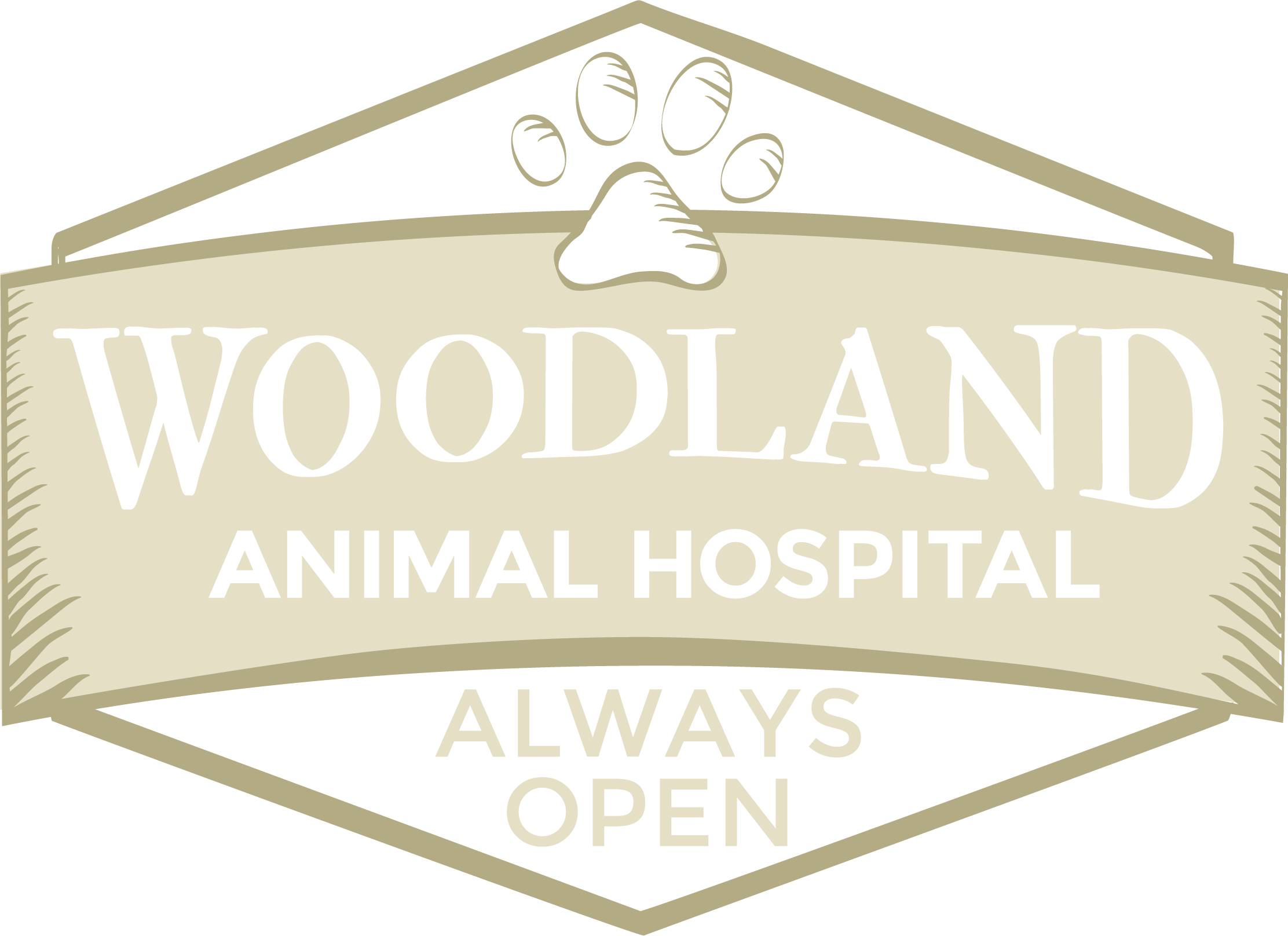11 Common Dog Illnesses and How to Handle Them
Dogs, much like humans, are susceptible to illness and disease. However, vaccinations can typically prevent many of these ailments. If you suspect that your dog is unwell, it’s essential to seek a veterinarian’s diagnosis and treatment. To help you understand some of the most common canine illnesses and how to manage them, here’s a list of the top eleven dog illnesses.
1. Kennel Cough
This respiratory infection, also known as Bordetella, is commonly referred to as Kennel cough. This condition is characterized by a barking cough and sneezing in dogs. Other symptoms include gagging, nasal discharge, and fever. Kennel cough is prevalent among dogs, and it typically spreads when they come into contact with many other dogs, such as at a kennel, daycare, or dog park.
What Should You Do?
You should contact your vet immediately if you suspect that your dog has kennel cough. While this condition is typically not serious and is easily treatable, it can lead to more severe respiratory issues if left untreated. Treatment usually involves antibiotics and cough suppressants, and most dogs recover fully within a week or two. As a result, most dogs make a full and speedy recovery. Additionally, to prevent the spread of kennel cough, it’s recommended to keep your dog away from other dogs until they are fully recovered.
2. Ringworm
Ringworm is a fungal infection that can affect a dog’s skin, nails, and hair. Ringworm will usually appear as skin lesions on the head and paws and patchy, circular bald spots on the body. Ringworm can be passed from dogs to humans, so you may notice symptoms of the disease in yourself as well.
What Should You Do if Your Dog Has Ringworm?
If you suspect that your dog has ringworm, it’s crucial to seek veterinary attention right away. Ringworm is a highly contagious fungal infection that can spread to other animals and even humans. While it’s not typically a serious condition, it can cause discomfort and skin irritation for your pet. Treatment usually involves a topical antifungal ointment or oral medication, depending on the severity of the infection. In addition to medication, it’s essential to keep your dog’s living area clean and disinfected to prevent the spread of the infection. Most dogs recover fully within a few weeks with proper treatment and care.
3. Heartworm
Heartworm is a parasitic infection that affects the cardiovascular system. Early symptoms of a heartworm infection are usually tough to spot, and they typically only consist of coughing and lethargy. Later stages of heartworm disease in dogs consists of symptoms associated with heart failure.
What Should You Do?
You should contact your vet immediately if you suspect that your dog may have heartworm. Heartworm is much easier to treat when it is caught in the early stages, and it is usually deadly when caught in the very late stages. For this reason, prevention of heartworm through medication is highly recommended for all dogs.
4. Lyme Disease
Lyme disease is a bacterial infection that is commonly transmitted to dogs through tick bites. It’s essential to contact your vet if you suspect that your dog has Lyme disease, as it can lead to more severe health problems if left untreated. Unlike some other diseases, dogs cannot pass Lyme disease to other dogs or humans. Symptoms of Lyme disease in dogs include fever, joint inflammation, lethargy, and decreased appetite.
What Should You Do?
Treatment usually involves antibiotics and anti-inflammatory medications to help manage pain and inflammation. It’s also essential to take preventative measures to reduce the risk of tick bites, such as using tick repellent, regularly checking your dog for ticks, and avoiding areas where ticks are prevalent.

5. Parainfluenza
Parainfluenza is a viral respiratory infection that can cause coughing and sneezing in dogs. While it’s typically not a life-threatening condition, it can be severe in young puppies, senior dogs, or dogs with weakened immune systems. In addition to coughing and sneezing, other symptoms of parainfluenza in dogs may include fever, lethargy, and nasal discharge. Treatment may involve supportive care, such as fluids and rest, as well as antiviral medication if necessary.
What Should You Do?
You should contact your vet immediately if you suspect that your dog has Parainfluenza. Luckily, it is usually fairly treatable with antibiotics. Most dogs are vaccinated against parainfluenza, as it is a core vaccine in the United States.
6. Giardia
Giardia is a parasitic infection that can cause diarrhea in dogs. It’s a common cause of intestinal issues in dogs and can be transmitted through contaminated water, soil, or feces. Symptoms of giardia in dogs may include diarrhea, vomiting, weight loss, and lethargy. Treatment usually involves medication to help eliminate the parasite and manage symptoms, such as diarrhea. It’s also essential to keep your dog’s living area clean and disinfected and to avoid letting your dog drink from potentially contaminated water sources. In addition to being harmful to your dog’s health, giardia can be transmitted to humans, so it’s crucial to take appropriate precautions to prevent the spread of the infection.
What Should You Do?
If you suspect that your dog has giardia, it’s essential to seek veterinary attention promptly to prevent the infection from spreading and to ensure your dog receives appropriate treatment.
7. Parvovirus
Parvovirus is a very serious viral infection in dogs that causes vomiting and diarrhea. This is a life-threatening disease, with young puppies having higher fatality rates than adult dogs. This is why Parvo vaccines are core vaccines for dogs, and it is strongly recommended that all dogs get a parvo vaccine as soon as possible. Dogs can get Parvo through contact with infected feces and infected dogs.
What Should You Do?
You should contact your vet immediately if you suspect that your dog has parvo. Treatment for this disease is intense, and it involves medications and intravenous fluids. The disease is usually fatal when left untreated.
8. Distemper
Distemper is another extremely serious and often deadly disease in dogs. Distemper causes dogs to have pneumonia and seizures. Dogs can get Distemper through contact with infected dogs and their nasal secretions. It is also possible for dogs to become infected through contact with contaminated objects as well. Luckily, the distemper vaccine is a core vaccine, and most dogs are protected against it.
What Should You Do?
You should contact your vet immediately if you believe that your dog may have Distemper. Unfortunately, Distemper is an extremely life threatening disease in dogs, and it is the leading cause of death by disease in dogs. Prevention through the Distemper core vaccine is crucial as a result.
9. Rabies
Rabies is a fatal disease that is passed to dogs through bites and scratches from an infected animal. Symptoms of rabies in dogs include foaming at the mouth, seizures, lack of coordination, extreme aggression, and paralysis. It is possible for an animal to transfer rabies to people when they bite or scratch them.
What Should You Do?
If you suspect that your dog may have rabies then you should contact your vet or the authorities immediately. Unfortunately, this is a terminal disease in dogs. Luckily, rabies can be prevented in dogs through an effective vaccine. In fact, in many places, it is illegal to not have your dog up to date on their rabies vaccine.
10. Bobcat Fever
Bobcat fever, also known as cytauxzoonosis, is a tick-borne disease that affects domestic cats in the Americas, primarily in the southern and southeastern United States. It is transmitted by the bite of infected ticks, such as the American dog tick and the Lone Star tick. While this disease does not typically have strong impact on dogs, dogs can still pass the disease onto cats they live or interact with.
The disease is characterized by a range of symptoms, including high fever, anemia, jaundice, loss of appetite, lethargy, and respiratory distress. The disease progresses rapidly, and without prompt treatment, it can be fatal in up to 90% of cases.
What Should You Do?
Preventative measures such as tick checks, using tick preventatives, and minimizing exposure to tick-infested areas can help protect dogs from tick-borne diseases. It is important to seek veterinary care promptly if you suspect that your dog may have contracted a tick-borne disease, as early diagnosis and treatment can greatly improve their chances of recovery.
11. Leptospirosis
Leptospirosis is a bacterial disease that can affect both dogs and humans. The bacteria responsible for Leptospirosis are known as Leptospira, and they can be found in soil and water contaminated with the urine of infected animals such as rodents, cattle, pigs, and wildlife.
Leptospirosis can cause a range of symptoms in dogs, including fever, lethargy, vomiting, diarrhea, loss of appetite, and muscle pain. In severe cases, the disease can progress to liver and kidney failure, which can be fatal.
What Should You Do?
Prevention of Leptospirosis in dogs includes vaccination, avoiding contact with contaminated water or soil, and practicing good hygiene. If you suspect that your dog may have contracted Leptospirosis, it is important to seek veterinary care promptly, as early diagnosis and treatment can greatly improve their chances of recovery.
Conclusion
In conclusion, while it’s always challenging to see our furry companions fall ill, it’s essential to be aware of common dog illnesses and how to handle them. From respiratory infections like kennel cough and parainfluenza to parasitic infections like giardia, each disease requires proper diagnosis and treatment to ensure a full and speedy recovery. By taking preventative measures, such as ensuring your dog’s vaccinations are up to date and avoiding contact with other sick dogs, you can help reduce the risk of your pet contracting these illnesses. Additionally, seeking veterinary attention promptly can make all the difference in your dog’s recovery. With proper care and attention, most dogs with these common illnesses make a full recovery and are soon back to their happy and healthy selves.
If you and your dog are located near Locust Grove, GA, Woodland Animal Hospital is here 24-hours a day, seven days a week to help when your dog gets sick. Give us a call today at (770) 467-3140, or request an appointment online.




